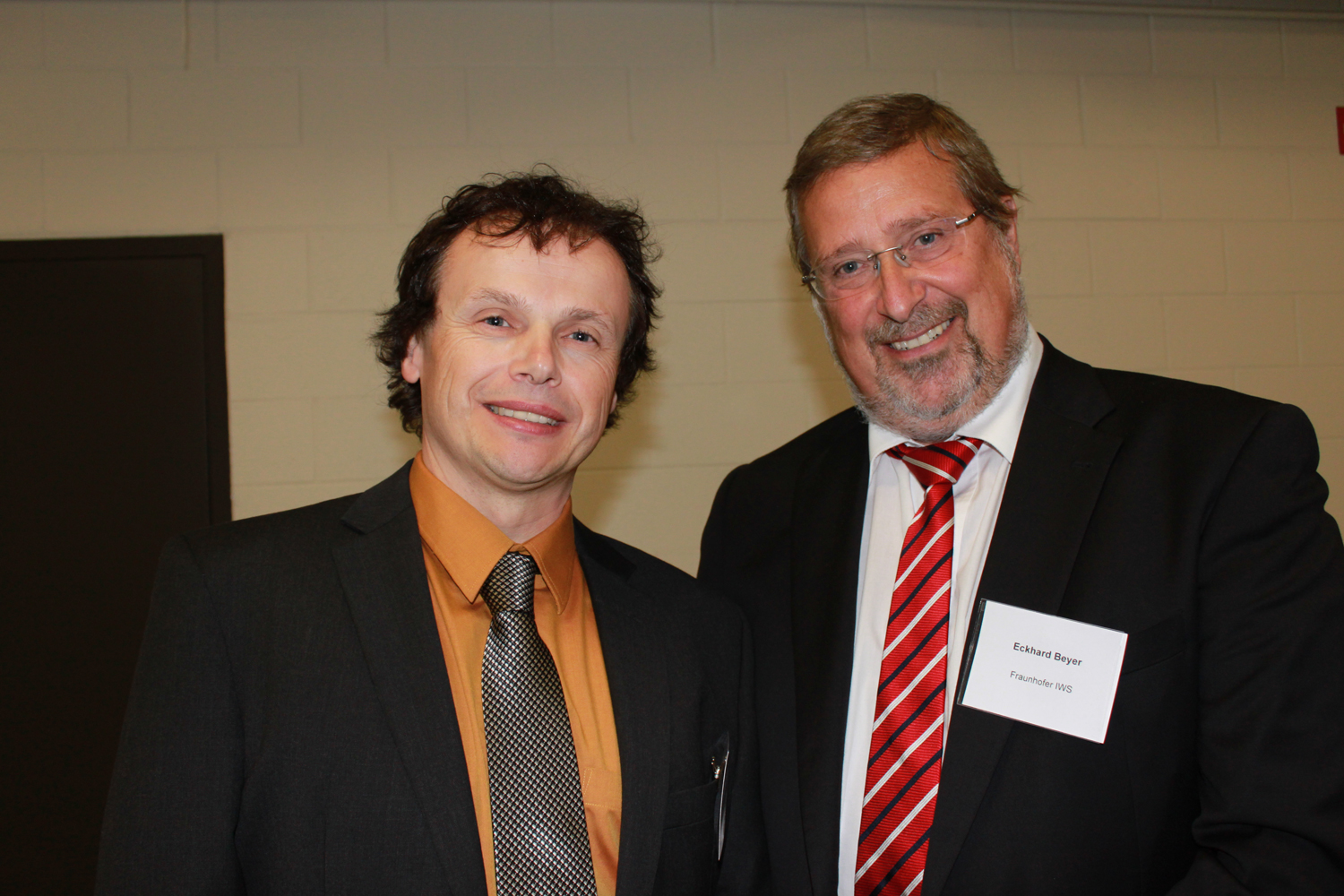Fraunhofer Center for Coatings and Laser Applications and Michigan State University celebrate 10 years of collaboration with Open House
Fraunhofer USA is proud to announce that its research center, the Fraunhofer Center for Coatings and Laser Applications (CCL) and its research partner, Michigan State University (MSU), are celebrating their 10th year of collaboration.


CCL focuses its research on laser materials processing, and diamond materials and coatings. Its business is based on strong industry connections and collaborations. The collaboration with Michigan State began in 2002, under the direction of Prof. Jes Asmussen, an international expert in diamond coatings, plasma system technology and microwave processing of materials. Dr. Asmussen’s research deals with applications of microwave discharges, plasma processing, the theory, modeling and development electron cyclotron resonance plasma, ion and free radical sources, plasma assisted thin film deposition and etching, plasma assisted CVD synthesis of diamond and diamond film applications, microwave sintering and curing of materials, development of industrial plasma and material processing machines.
Michigan State University has been advancing knowledge and transforming lives through innovative teaching, research and outreach for over 150 years. MSU is known internationally as a major public university with global reach and extraordinary impact. Its 19 degree-granting colleges attract scholars worldwide who are interested in combining education with practical problem solving.
This ten year collaboration with Michigan State University is just one of the partnerships Fraunhofer USA has with universities. The Fraunhofer Center for Manufacturing Innovation is located on the campus of Boston University. The Fraunhofer Center for Experimental Software Engineering is located on the campus of the University of Maryland, and our newest center, the Fraunhofer Center for Energy Innovation which is located on the campus of the University of Connecticut. Other important university partnerships include the University of Delaware, Massachusetts Institute of Technology and the University of Michigan. These partnerships serve as a bridge between academic research and industrial needs.
“The Center for Coatings and Laser Applications is not only mutually beneficial to the partners but also provides applied research services to many companies in Michigan. We are proud to be contributing to the economic development in Michigan, the location of our corporate headquarters since our beginning in 1994,” said Dr. William Hartman, Executive Vice President of Fraunhofer USA, Inc.
About Fraunhofer
The Fraunhofer-Gesellschaft is the leading organization for applied research in Europe. Its research activities are conducted by 66 Fraunhofer Institutes located throughout Germany. The Fraunhofer-Gesellschaft employs a staff of about 22,000 who work with an annual research budget totally 1.9 billion euros.
Fraunhofer USA, Inc. is a subsidiary of Fraunhofer with its headquarters in Plymouth, Michigan. Fraunhofer USA, a 501(c)3 non-profit research organization, operates labs in fuel cell technology, sustainable energy, biotechnology, computer security, manufacturing innovation, laser technology, and industrial coatings. Fraunhofer USA's research centers collaborate with major research universities in the United States to bring innovative technologies to the marketplace. www.fraunhofer.org
About Michigan State University
Michigan State University, a member of the Association of American Universities and one of the top 100 research universities in the world, was founded in 1855. MSU is an inclusive, academic community known for traditionally strong academic disciplines and professional programs, and its liberal arts foundation. The cross- and interdisciplinary enterprises connect the sciences , humanities, and professions in practical, sustainable, and innovative ways to address society’s rapidly changing needs.
As a public, research-intensive, land-grant university funded in part by the state of Michigan, its mission is to advance knowledge and transform lives. www.msu.edu
 Fraunhofer Institute for Material and Beam Technology IWS
Fraunhofer Institute for Material and Beam Technology IWS